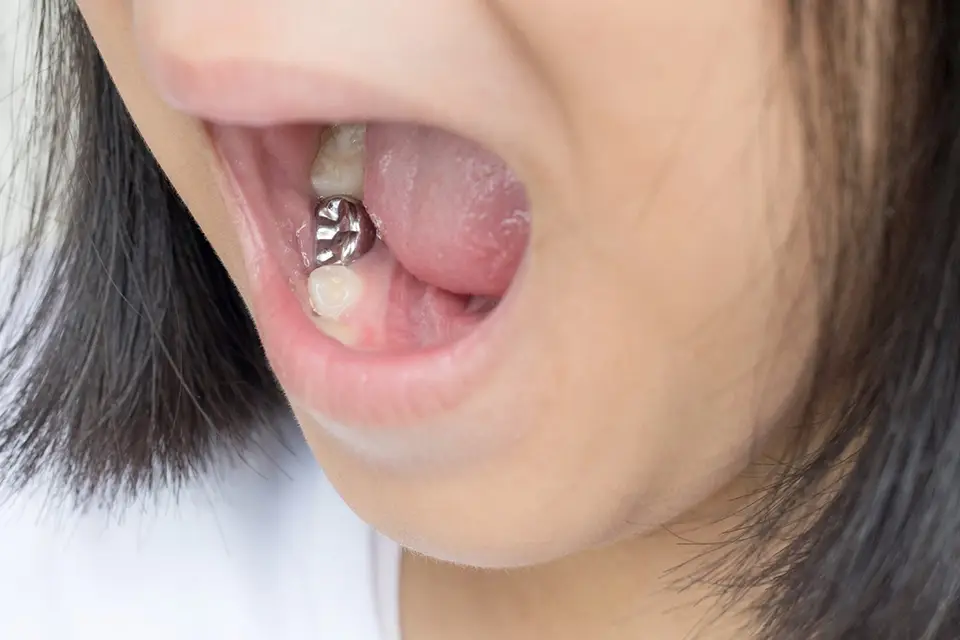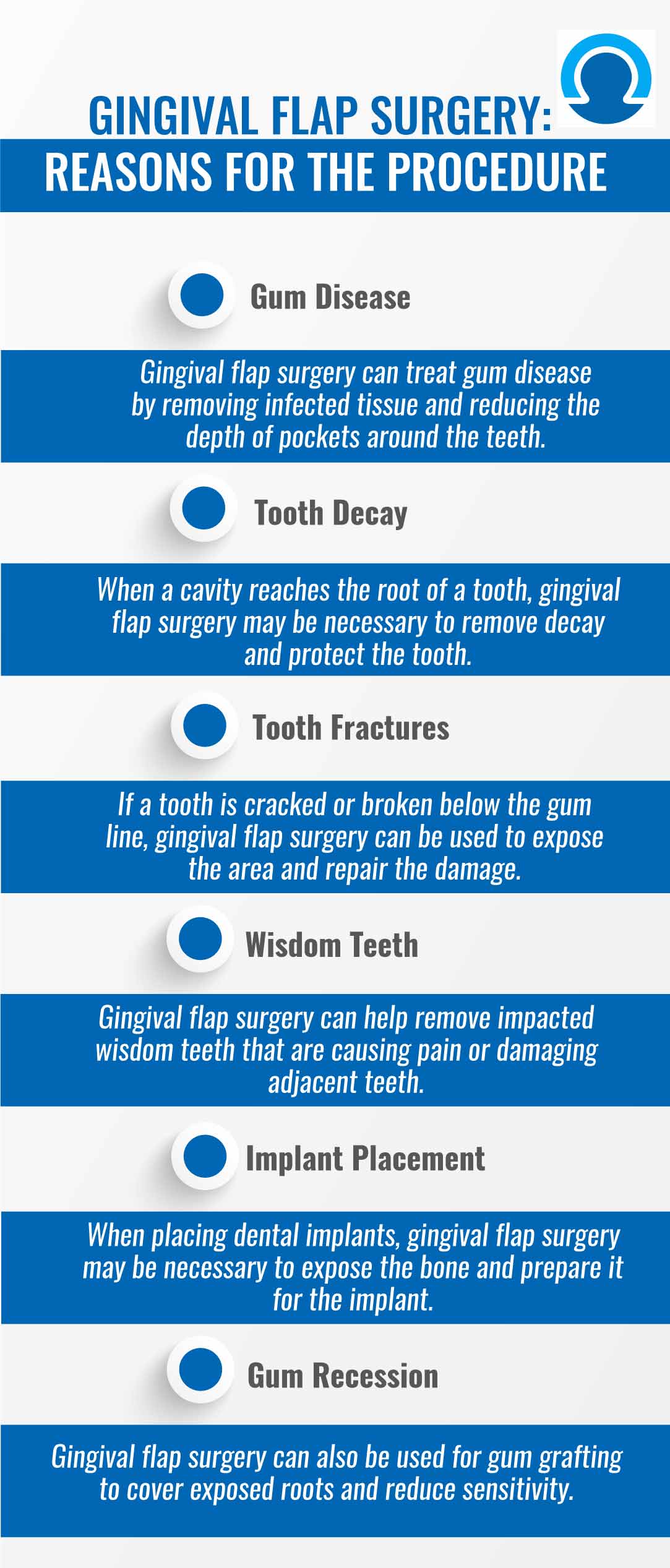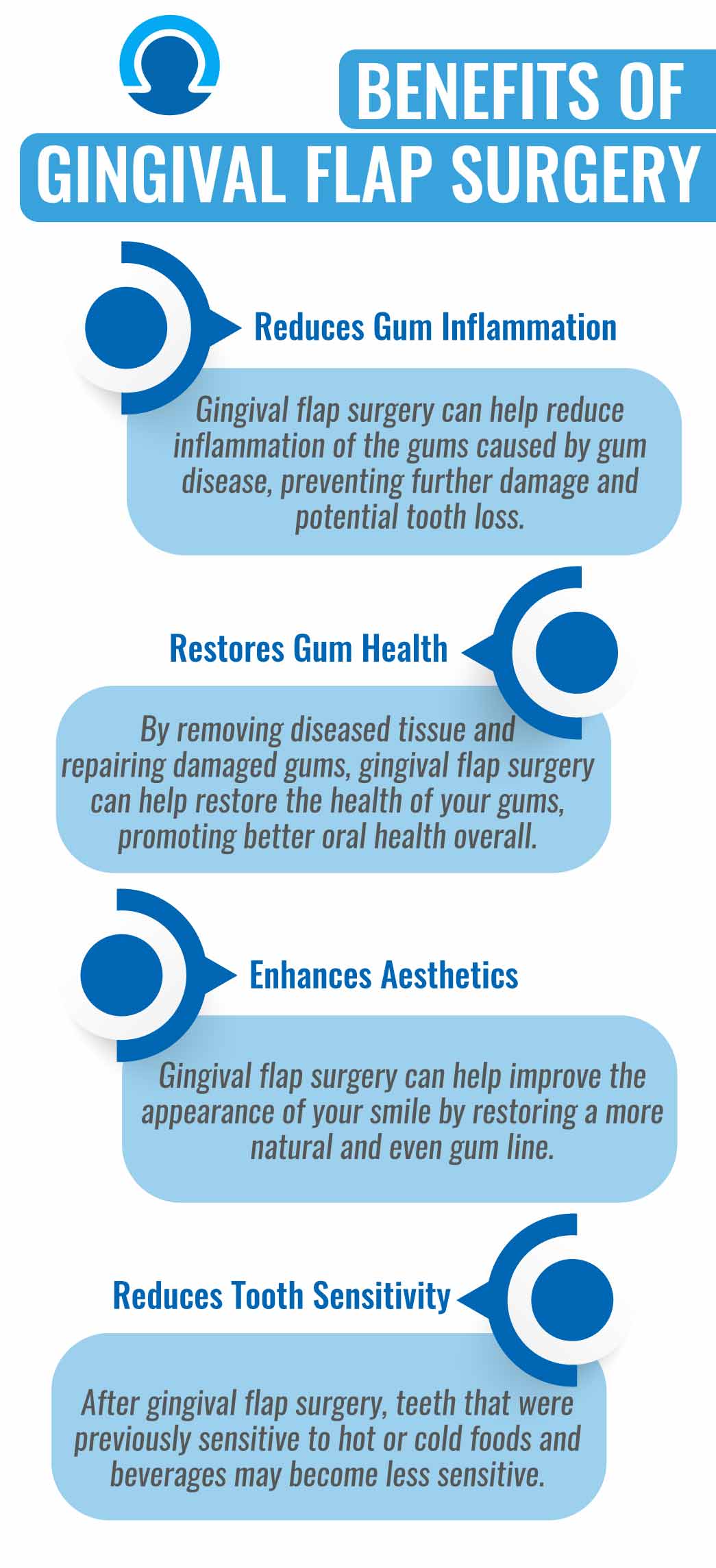
Need A Gingival Flap Surgery in Houston, Texas?
Using sedation dentistry, we can provide treatment to many patients in our practice in just one surgical visit. Intravenous administration is the most common method for administering sedatives.
Quick care for sudden oral problems, ensuring immediate relief and treatment.
Comprehensive oral care for all ages, promoting lifelong dental health and well-being.
Routine checkup for oral health, detecting issues early and maintaining a healthy smile.
Specialized oral care for children, ensuring a healthy smile and positive dental experiences.
Professional oral hygiene procedure removing plaque, tartar, and stains for a healthier smile.
Surgical removal of teeth for oral health, relieving pain and preventing complications.
Thin porcelain shells bonded to teeth, improving appearance and covering imperfections.
Cosmetic procedure to lighten and brighten teeth, enhancing smile aesthetics.
Fixed prosthetic device replacing missing teeth, restoring oral function and appearance.
Custom-made restoration caps a damaged tooth, restoring its shape, strength, and function.”
Specialized dental care for children, correcting tooth and jaw issues to ensure healthy development.
Straightening and aligning teeth for improved oral health and a confident smile.
Clear, removable aligners for discreet teeth straightening, offering a comfortable and nearly invisible orthodontic solution.
Custom devices maintain post-orthodontic tooth alignment, preserving your newly corrected smile.
Permanent tooth replacements surgically anchored for natural appearance and function.
Full-arch tooth restoration with four implants, offering stable and efficient smile rehabilitation.
Surgical procedure to strengthen and rebuild bone, often used for dental implant support.
Dental procedure to treat infected or damaged tooth pulp, relieving pain and preserving the tooth.
Restoration of cavities with materials like composite or amalgam, preserving tooth integrity and function.
Non-invasive procedure using special materials to repair and enhance teeth, improving appearance and function.”
Removable prosthetic teeth to replace missing ones, restoring oral function and aesthetics.
Techniques to relax and ease anxiety during dental procedures, ensuring patient comfort and a stress-free experience.
Using sedation dentistry, we can provide treatment to many patients in our practice in just one surgical visit. Intravenous administration is the most common method for administering sedatives.

If you have severe periodontal disease and scaling and root planing have not been able to clear up the gum infection, what options do you have left? In such a situation, you’ll look for affordable gingival flap surgery, and Zara Dental Services can assist you in getting through the procedure.
You will undergo complete teeth cleaning to get rid of any tartar and plaque before you start this treatment. In order to access the tooth’s root and bone during surgery, the dental surgeon first removes the gums from the teeth and folds them back. Following the removal of inflammatory tissue, the dentist will perform scaling and root planing, which is essentially a thorough cleaning of tartar and plaque. Finally, depending on the circumstance, the gums are replaced and repaired using either dissolvable or conventional surgical stitches.


The initial step would be the removal of plaque from your teeth by your dentist. During the examination, the dental hygienist will also ensure that your dental hygiene is in good condition.
Once you’re safe, your periodontist will ask you a few questions about your health. This is a routine measure to ensure optimal outcomes. The response you provide must be truthful.
They will want to know:
Although there seems to be a lot to get ready for, every step is essential for your safety.

Patients may experience some discomfort following the procedure, but your dentist will provide a prescription for pain medication to alleviate any discomfort. Actually, the majority of patients respond well to OTC pain medications alone. After approximately 7 to 10 days, the dentist will reevaluate your gums to ensure that they are healing properly and are free of any debris.
As always, we at Zara Dental Services are aware that undergoing a procedure like this can be stressful and unsettling. As a result, we work hard to create a welcoming, relaxing, and comfortable atmosphere where you can ask questions and receive responses at every stage of the procedure.
In most cases, bleeding ceases spontaneously within a few days. However, you should visit your dentist if you still bleed after that.
If bleeding persists and other symptoms remain unchanged or worsen, it could indicate an infection that requires immediate treatment by a dentist. If the issue is not addressed promptly, it may lead to more significant complications down the line.




Gum disease doesn’t always hurt, so it’s important to watch out for any of these signs:
Periodontitis treatment typically involves gingival flap surgery, which a periodontist performs. Our dentists in Houston may recommend it for individuals with moderate or advanced periodontitis. Typically, non-surgical treatment is prioritized initially. This is known as “root planing” and “scaling” in dental practice. Then, if non-surgical methods fail to eliminate gum infection, a Dental Specialist may recommend Gingival Flap Surgery.
Gingival flap surgery can offer several advantages for patients with advanced periodontal disease. By promoting healthy gum tissue growth, reducing tooth sensitivity, and preserving teeth, this procedure can help patients achieve improved oral health and maintain healthy gums and teeth for years to come. It is important to consult with a qualified dental professional to determine if gingival flap surgery is right for you.
Improved Gum Health
Gingival flap surgery removes bacteria and plaque from the gums and restores healthy gum tissue. This can improve gum health and prevent further damage to the teeth and supporting bone in the future.
Tooth Preservation
This surgery can help preserve teeth that might be lost due to advanced periodontal disease. By removing diseased tissue and cleaning the teeth and gums, the surgery can help promote healthy tissue growth.
Faster Healing Time
Modern gingival flap surgery techniques often use advanced technologies such as lasers, which can result in quicker healing times and less discomfort for patients.
Improved Aesthetics
Gingival flap surgery can enhance the appearance of the gums and teeth by removing diseased tissue and promoting healthy tissue growth.
Reduced Tooth Sensitivity
Gingival flap surgery can help reduce tooth sensitivity by removing exposed tooth roots and covering them with healthy gum tissue.
Long-lasting Results
Gingival flap surgery can provide long-lasting results with proper oral hygiene and regular dental check-ups.
Local anesthesia will be administered during gum flap surgery to minimize any discomfort. However, it is possible that post-surgery discomfort may occur, and pain management medication may be necessary to alleviate any discomfort.
There is a low probability of experiencing any risks following flap surgery. However, dangerous bacteria could enter your gum tissues and result in gum infections if you don’t take appropriate care of your mouth following surgery.
The dental procedure will recover in approximately two to three weeks, within which your gum tissue will be completely healthy. The discomfort is expected to subside within one to two days. The bleeding of the gums should have ceased as well.
We will be glad to file a predetermination for you to verify coverage of any necessary dental treatment. And we accept most PPO insurances.